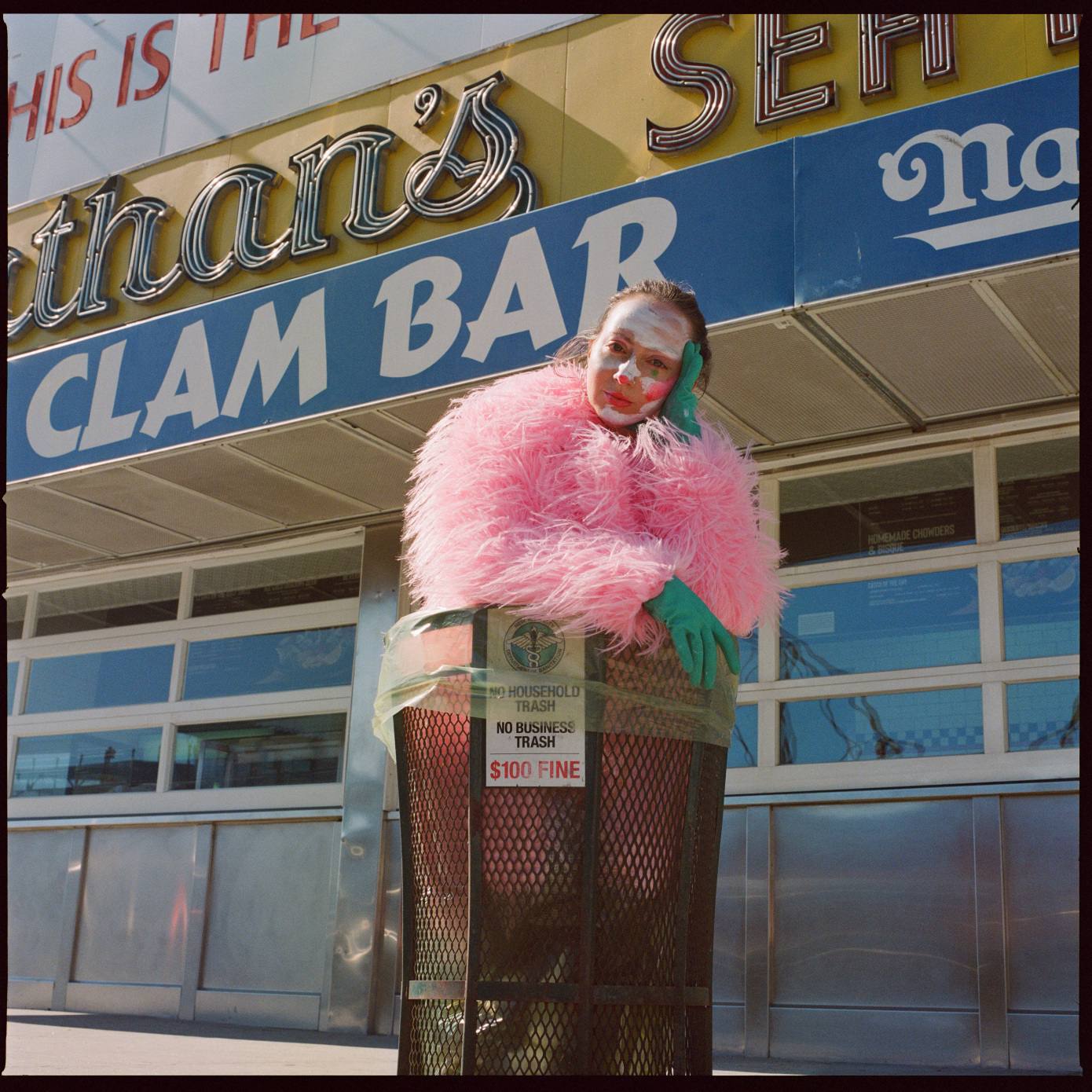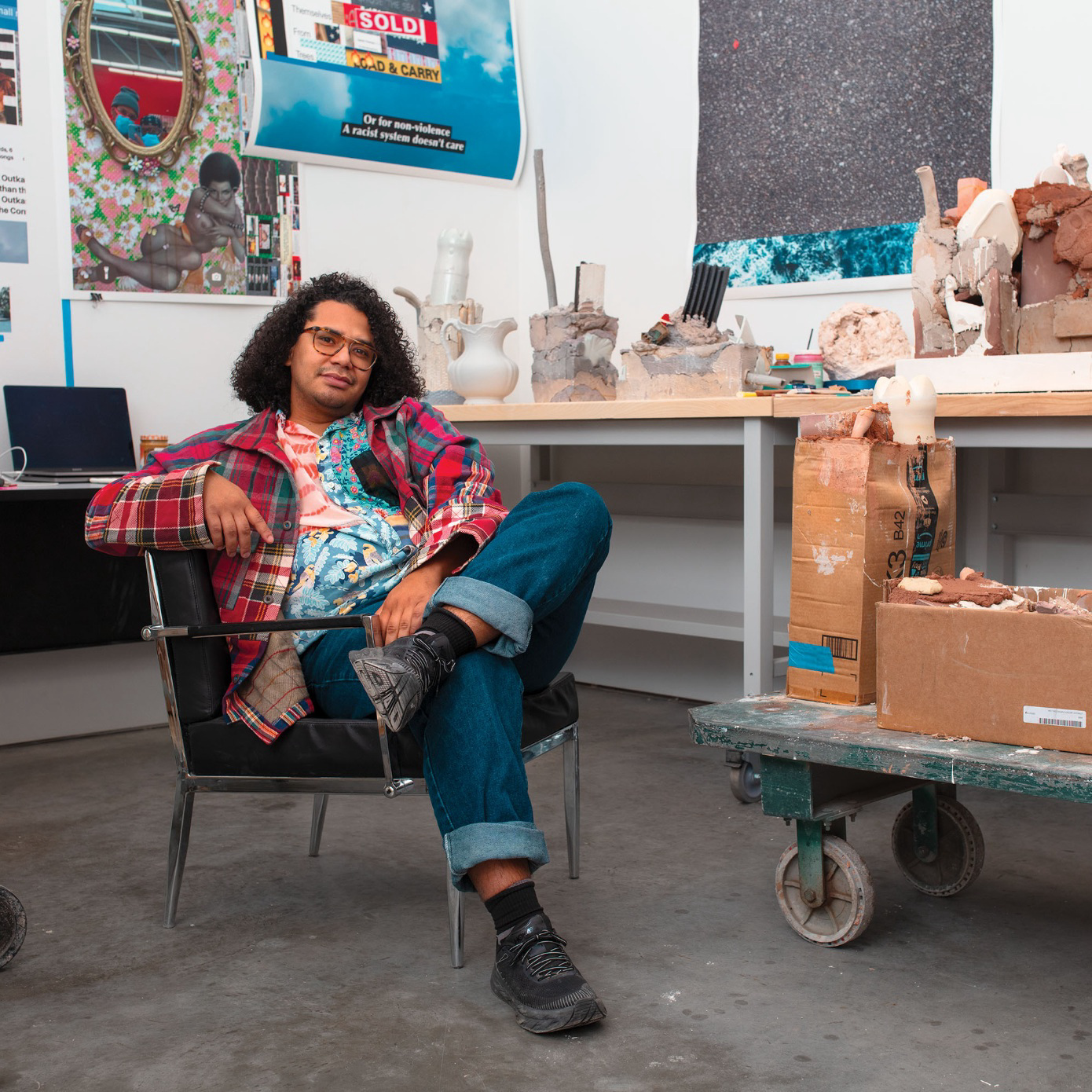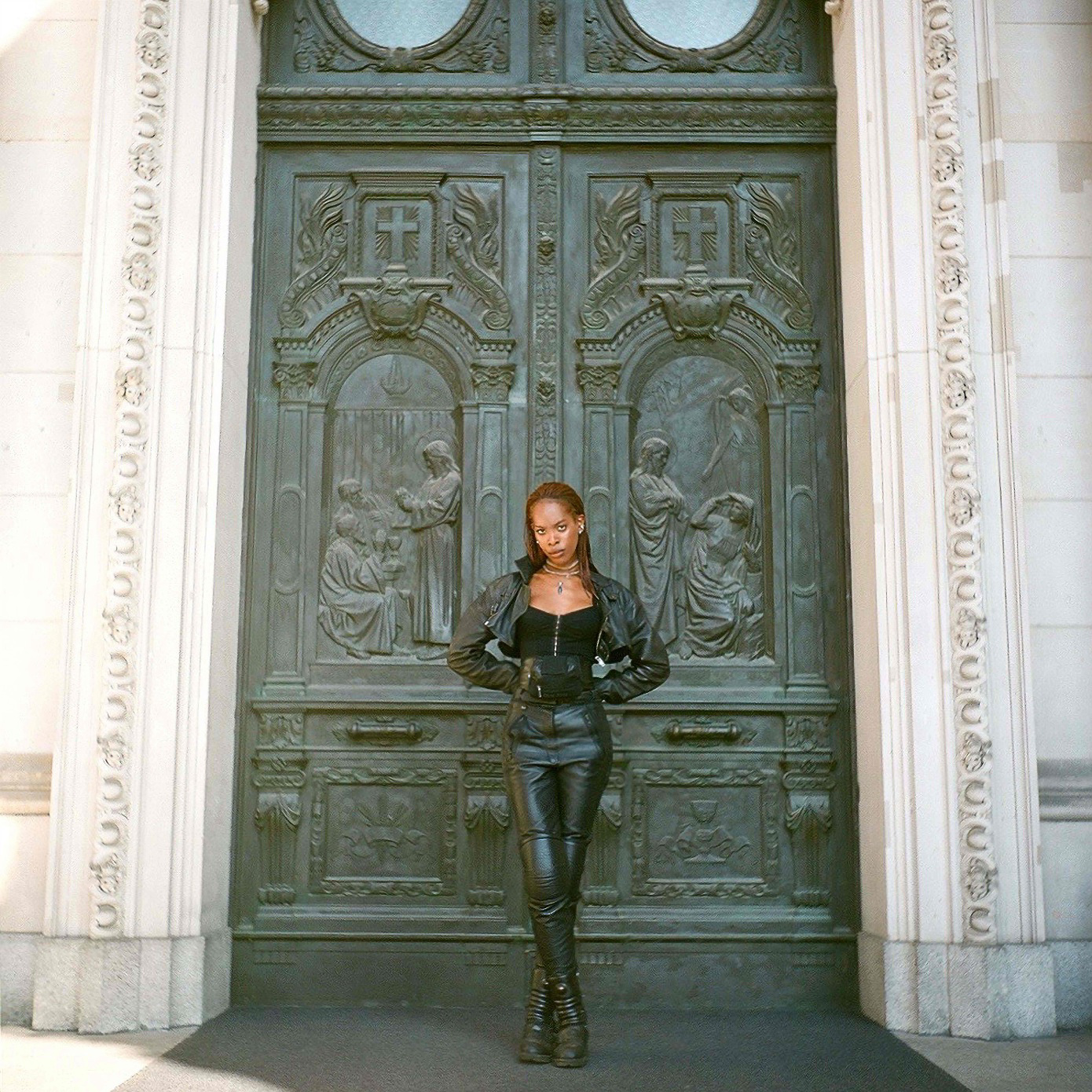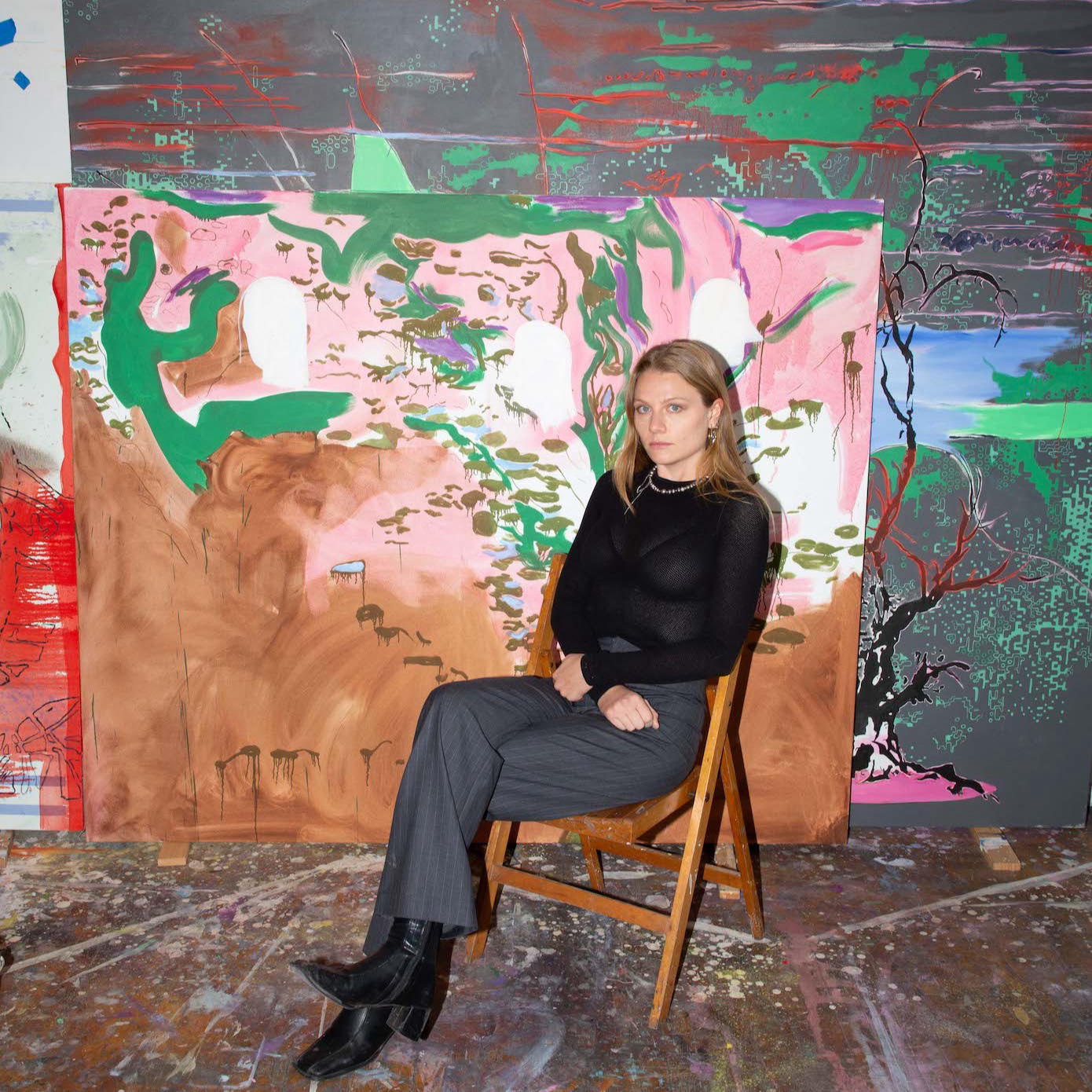
At the moment, Alex Tatarsky is deep in what they call “sad boy studios,” which consists of their bedroom, their mind, and hundreds of notebooks that say nothing.
It’s a zone of research for Sad Boys in Harpy Land, the New York native’s episodic, decade-long performance project that adapts Goethe’s story of Wilhelm—a tongue-in-cheek bildungsroman about a German boy who dreams of becoming a theater artist—and simultaneously pokes at and deflates the genre’s typically linear idea of progress.
The scope of Tatarsky’s work ranges from deliriously riotous solo-plays such as Americana Psychobabble; to Shanzhai Lyric, the “poetic research and archival unit” they co-founded with their longtime collaborator Ming Lin; to Canal Street Research Association, the organization’s living theater offshoot and “fictional office;” and a recent residency as an ornamental hermit on the Glen Foerd estate in Philadelphia.
Each undertaking is marked by a playful approach to a serious commitment: getting to the bone of many of the art world’s deeply embedded ethical contradictions. The Goethe adaptation germinated in their early 20s, when Tatarsky, 34, first began making so-called “solo performances” and confronted a crisis of meaning around both of those words. What does it mean to be solo, a person, an individual; and what does it mean to perform that?
While their stage presence tends to be refreshingly unhinged and hysterical, Tatarsky is warm and grounded in person, with a soft lilting voice that occasionally bursts into fits of giggles.
“I realize these ideas might sound a little heavy-handed. But remember, I do identify as a clown, so it’s lighthearted,” they say, laughing. “It’s the first time they’re callingme a playwright, and I keep being like, ‘I’m just an experimental clown artist!’ Clown makeup is just stylized tears, translating your sorrows into some form of aesthetic delight.”
Like most of their work, Tatarsky sees Sad Boys—which debuted last year at New York’s Abrons Art Center and will be staged at the Midtown off-Broadway staple Playwrights Horizons this month (hence the playwright honorific)—as ongoing, life-long projects.
“The way finished products are sold and premiered is antithetical to how a lot of performance practice is, which is growing and shifting over the course of a life,” they tell me. “I feel devoted to a work’s unfinished-ness and sense of unraveling, to letting the seams show.”
For more about CULTURED's 2023 Young Artists, read our features with Adam Alessi, Charisse Pearlina Weston, and Oscar yi Hou.




